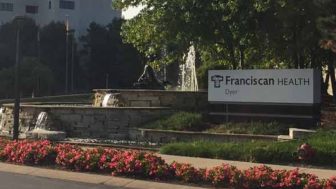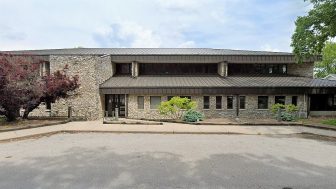Eskenazi Health Center Grassy Creek
9443 East 38th Street
Indianapolis, IN 46235
Indianapolis, Indiana
317-890-2100
Get Help Now - 463-888-9260
 Who Answers?
Who Answers?

Addiction Treatment Programs
Drug Rehab
Men's Rehab
Women's Rehab
Teen & Adolescent Program
Drug Rehab
For long-term recovery from drug addiction, drug rehab in Indiana is often key. This treatment gives individuals who are struggling with a substance use disorder the tools to manage their disorder and achieve long-term sobriety.Men's Rehab
Men’s rehab in Indiana allows for greater participant engagement by offering same-gender treatment sessions. Often, men feel more comfortable in these settings, so they are more willing to share and receive support.Women's Rehab
Women’s rehab in Indiana can be very beneficial for participants. These programs offers services that are designed specifically for women, which can help participants overcome the unique challenges they face.Teen & Adolescent Program
Each young adult program in Indiana covers a wide range of addictions. Programs offer evidence-based therapies to treat alcohol, heroin, opioid, cocaine, benzodiazepine, and marijuana addictions, among others.Levels of Care
1
Inpatient Rehab
During inpatient reahb, you live at the treatment facility and participate in several forms of therapy through...out each day. You also engage in forms of psychotherapy, which usually includes group and family therapy as well as individual counseling. Many programs also offer holistic treatment and recovery-focused life skills training.Read More
2
Outpatient Rehab
Indiana outpatient rehab focuses on providing tools necessary to stay sober. This involves several weekly coun...seling sessions and involvement in at least one support group, such as NA or AA, for several weeks or months. During that time, you’ll learn how to replace unhealthy habits with healthy ones and prevent relapse.Read More
3
Dual Diagnosis & Mental Health
Dual diagnosis in Indiana treats co-occurring disorders, meaning it addresses both your mental health and reco...very needs. A multidisciplinary team of psychiatrists and addiction experts work together to ensure all aspects of your mental and physical health are treated.Read More
Insurance
 Medicaid Accepted
Medicaid Accepted
If you're eligible for Medicaid (called Indiana Medicaid/Hoosier Healthwise), you can use your coverage to hel...p pay for alcohol and drug rehab in Indiana. In most cases, Medicaid will cover most or all of the costs of treatment, including rehab.Read More
 Medicare Accepted
Medicare Accepted
If eligible, Medicare can be used to cover the cost of alcohol and drug rehab in Indiana. The amount of covera...ge it provides depends on many things, so it’s a good idea to contact your provider and get specific details.Read More
 Private Insurance
Private Insurance
If you have private rehab insurance, you may be able to use your coverage to pay for some or all of your treat...ment in Indiana. Your insurance policy determines the amount of coverage, and you may be left with some out-of-pocket costs like a co-payment, or co-insurance. Check with your insurer for more information.Read More
 Self-Pay Options
Self-Pay Options
For those entering alcohol or drug rehab in Indiana, self-pay options are a common method of paying for treatm...ent. Examples of private pay include paying in cash, using a credit card, or taking out a personal loan.Read More
 Sliding Scale Payment
Sliding Scale Payment
If you need help paying for drug rehab in Indiana but can't pay the full amount, you may be eligible for a sli...ding scale payment plan. Eligible clients are charged based upon their individual needs and what they can afford to repay. You must complete an application and provide supporting financial documentation in order to qualify for this program.Read More
Contact Eskenazi Health Center Grassy Creek




